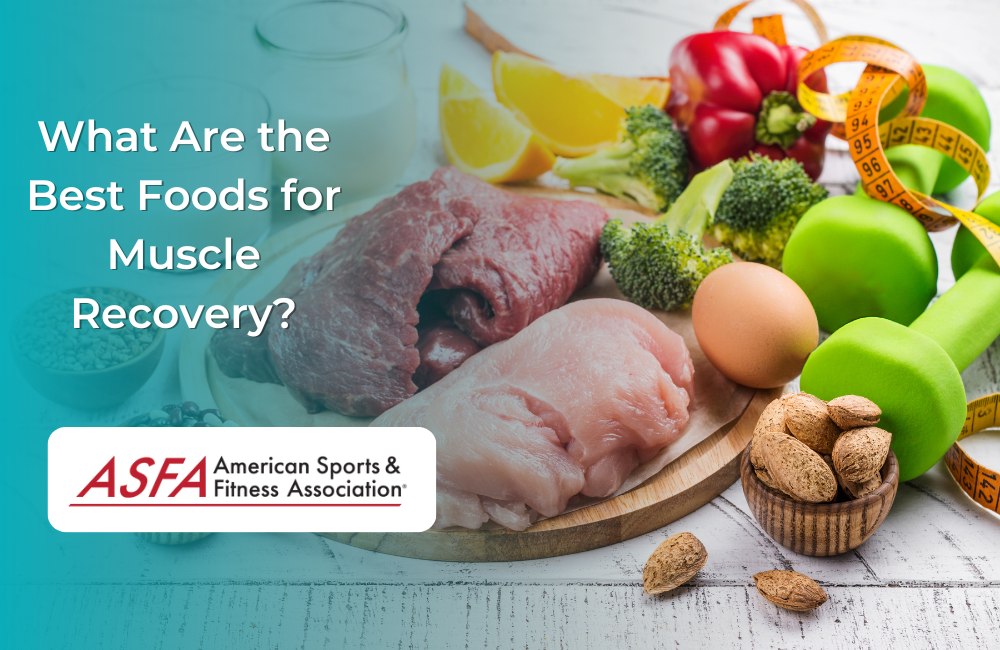
What Are the Best Foods for Muscle Recovery?
Muscle recovery is an essential part of your workout routine, but it's a topic that doesn't get as much attention as other aspects of muscle building. This is because most people think they already know what they need to recover. However, there are actually some common mistakes people make when trying to speed along the healing process after a hard workout or intense training session. Here are five nutrients that will help your muscles recover faster:
Protein
Protein is an essential part of building and maintaining muscle. It's the main building block that your body uses to make new muscle tissue, so if you don't get enough protein in your diet, you'll have difficulty getting bigger and stronger.
Protein also helps prevent muscle loss during weight loss and aging by keeping insulin levels low so that more fat can be burned for energy instead of being stored as body fat.
If you want to gain mass or maintain size while losing fat (or vice versa), consider adding some high-quality sources of animal-based proteins such as eggs, meat, or fish into your diet regularly--and never skip breakfast!
Omega-3 Fatty Acids
Omega-3 fatty acids are essential for muscle repair. They're found in fish, nuts, and seeds but can also be taken as a supplement. Omega-3s have been shown to reduce soreness and improve recovery time after exercise. Foods high in omega-3s include:
- Salmon
- Walnuts (and other nuts)
- Flaxseed oil
Creatine and Glycogen
Creatine and glycogen are two more important nutrients that can help you recover from your workouts.
- Creatine is an amino acid that's found in meat, fish, and other animal products like dairy. It helps to build muscle mass by providing energy for intense workouts or activities that last longer than 90 seconds (like running marathons). You can also take creatine as a supplement if you don't eat enough animal products or want to increase your intake of this nutrient without eating more meat or fish.
- Glycogen is another energy source for muscles--it's stored in the liver as well as skeletal muscles themselves so they have enough fuel on hand when they need it most during exercise sessions; this carbohydrate is broken down into glucose molecules during high-intensity activities such as weightlifting or sprinting toward the finish line at a track meet!
BCAAs
BCAAs (branched-chain amino acids) are essential amino acids found in food sources like meat, fish, and eggs. These three BCAAs are leucine, valine, and isoleucine--and they're especially important for athletes because they're used in muscle protein synthesis.
In addition to being taken as a supplement by those looking to build muscle mass or lose weight more quickly than normal, BCAAs can also be consumed through whole foods like chicken breast or salmon fillets.
Sodium, Potassium, and Calcium
Sodium, potassium, and calcium are essential for muscle repair. Sodium is needed to maintain blood pressure, potassium is required to maintain normal cell function, and calcium is important for strong bones and teeth.
Calcium-rich foods include dairy products like milk or yogurt. Other sources of calcium include kale; broccoli; bok choy (Chinese cabbage); turnip greens; mustard greens; okra; tofu made with calcium sulfate or magnesium chloride instead of soy sauce; canned salmon with bones removed (check the label); white beans with skins removed.
These nutrients are essential for muscle repair.
If you want to build muscle, it's important to know what foods are best for recovery. Protein is essential for muscle repair and growth; omega-3 fatty acids help reduce inflammation and encourage blood flow which improves recovery; creatine helps muscles absorb water so they're able to grow bigger and stronger; glycogen replenishes your energy stores after workouts so that next time around you won't feel like a limp ragdoll on the couch after your workout (or at least not as much).
- BCAAs (branched-chain amino acids) are made up of three different amino acids: leucine alpha-ketoglutarate (AKG), valine AKG and isoleucine AKG. These BCAAs have been shown in studies conducted by scientists at The University of Texas Medical Branch at Galveston alongside researchers from other universities around the world, including Georgia State University in Atlanta, Georgia, USA, as well as Griffith University in Brisbane, Australia, among others who found that consuming these specific types of proteins within 30 minutes after finishing up with weights will help prevent muscle soreness by reducing lactic acid buildup inside our bodies during exercise.
Conclusion
The above nutrients are essential for muscle recovery after exercise. If you don't get enough of them, your body won't be able to repair itself and grow stronger. That's why we recommend consuming these foods regularly as part of an overall healthy diet with plenty of whole grains, fruits, and vegetables, and don't forget about water!




